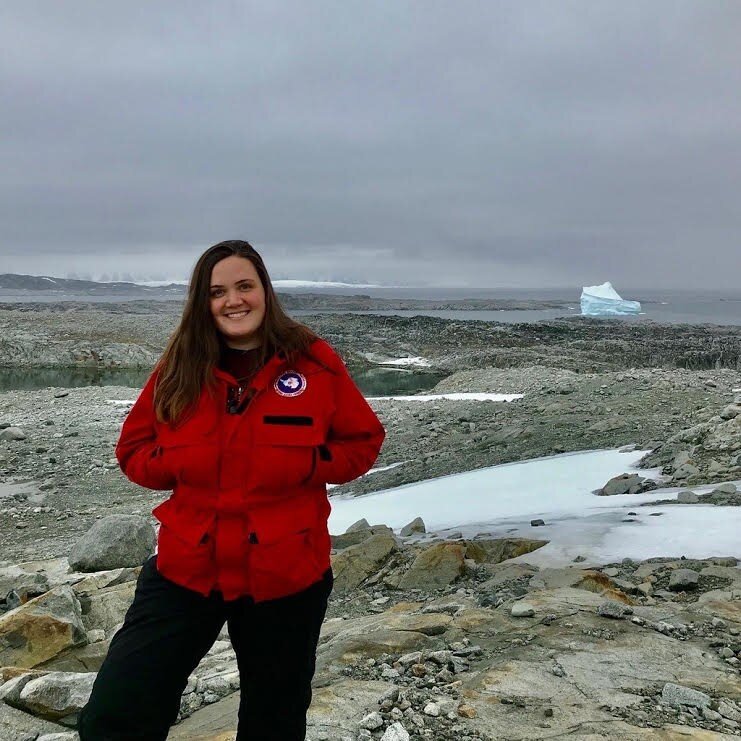Antarctic Marine Bacteria! - An interview with Beth Connors
BY FARRAH LEONE
Beth Conoors is a PhD student in the Bowman Lab for Scripps of UCSD. She is currently spearheading trips to Antarctica where she studies the ecological roles and genomics of heterotrophic (must eat to live) marine bacteria.
1. There tends to be a negative connotation around bacteria in our society. What are the benefits of bacteria in our ecosystem that the public may not be aware of?
This is a great question! Bacteria are incredible and provide a lot of services for us — from improving gut health to providing oxygen via photosynthesis (Cyanobacteria). There’s so much diversity and a lot still to learn!
2. What’s the most surprising thing you’ve learned so far?
I study bacteria in Antarctica, and I continue to be really struck by how dramatic the seasonal trends are in the climate; every year is a transition from an ice-covered winter to a mild summer under a midnight sun. I’m really excited to see how bacterial ecology changes with these extreme seasons.
3. Why should people care about your research? What are the larger implications of your work?
Another important question! Bacteria regulate the amount of carbon that is sequestered (taken up) by the ocean from the atmosphere. One of the most important parts of my research will be taking bacterial production measurements to better constrain the biological control of carbon in climate models of the region. Exciting stuff!
4. Why is Antarctica the focus of your research?
We still have a lot to learn about Antarctica, and particularly the microorganisms of the region. I am really interested in the adaptations that are common among these critters to survive in such a harsh climate.
5. What does a normal day look like for you?
A normal day looks like zoom school (this semester a modeling class and a class on ocean law and policy), debugging code, and running DNA extractions in the lab.
6. How did you end up in this opportunity? What advice do you have for future scientists that want to get involved in expeditions?
I feel really fortunate that my advisor Jeff Bowman took me on as a student. I would say to future scientists to dream big! They can achieve more than they think.
7. What’s one thing you wish other researchers understood about polar science?
Polar science is critical science, as the environment in those regions is changing rapidly. These environments need a diverse team of scientists to study how they are changing and what it means for us and our planet.


